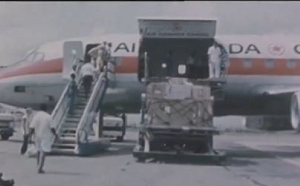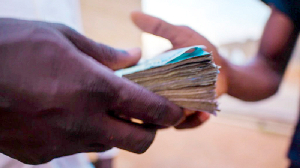Business News of Tuesday, 17 December 2013
Source: B&FT
Shelve windfall tax

A tax expert, Abdallah Ali-Nakyea, has urged government to shelve the attempt to introduce a windfall tax into the mining sector in order to save the industry from collapse.
Mr. Ali-Nakyea, who is also an attorney and solicitor of WTS Tax Consulting, described the windfall tax as unnecessary and said the proposal to “reintroduce” the tax is ill-timed and ill-conceived at a time that mining companies are having their worst run of commodity results leading to a number of retrenchment exercises.
“We may have to shelve this windfall tax. We are of the view that we should put it on hold. The windfall tax is not a new law. We had it as an additional profit tax from 1986 and it had been with us until 2010 when it was repealed. And now we want to bring it back, when between 1986 to 2010 it was never applied. So what informed us to bring it back? There’s no basis for it.
“That’s why some of us think that it will be difficult to let it see the light of day because of the dynamics in the mining industry. We don’t even have the political will to apply it,” he said.
Mr. Ali-Nakyea made these remarks at a forum organised by the Graduate School of the Pentecost University College to discuss resource mobilisation initiatives in the 2014 budget in Accra.
Attempts to introduce the windfall tax were put on hold in 2011 after a series of protests from mining firms. Additionally, a couple of the mining companies including Newmont and Anglogold Ashanti have a stability agreement with the government, which insulates the companies from any new legislation that will affect their operations for a period of up to 15 years.
The Finance Minister, Seth Tekper, said that the government has not backed down on the windfall profit tax bill first introduced to Parliament last year, but only withdrew it for further consultations with the industry and regulators.
Mr. Ali-Nakyea said that until government is able to re-negotiate with the mining companies that have a stability agreement with the state for the clause to be removed or the period allowable reduced, the mining firms are protected by law to forgo paying the windfall tax if introduced.
“If you bring this windfall tax, some of these mining companies will not pay because of the stability clause. That is why a renegotiation team has been put in place to renegotiate with the mining teams to remove the stability clause or reduce the number of years.
“Until that is done, we don’t see how the windfall tax can come into being. Secondly, it was thought of at the time gold prices were at their highest. Today, they are at their lowest and the companies are laying-off workers. So if you bring this tax, they will of course wind-up and leave the gold in the earth,” he said.
Mr. Ali-Nakyea said gains from the rise in corporate tax for mining companies from 25% to 35% and the abolition of some exemptions for assets of mining firms from taxes should provide the cushion for government to do away with the proposed 10% windfall tax.
He explained: “The corporate tax of mining companies has been raised from 25% to 35%, so the 10% they wanted from the windfall tax is already inbuilt into the corporate tax. And in 2013 there has been an amendment in the law to remove the exemption of class-3 assets from capital gains tax, so we will get capital gains at 15%; so why the hurry to bring this 10% as windfall tax?
“For me, I think we should concentrate on what the 15% capital gains and additional 10% on corporate tax will bring. Because, as much as we want the revenue, we shouldn’t hurt the industry -- especially at a time that the companies are laying off workers, which means we will miss the workers’ PAYE tax.”
Gold prices hit an all-time high at US$1,913 an ounce in 2011, which prompted government to consider introducing a tax system that would allow the state to maximise its gains from the mining sector.
However, falling prices in 2013 have been further worsened by rising costs as gold miners in the country are currently producing at a cash cost of US$962 per ounce -- up 25% from US$768 per ounce in the first half of 2012.
This situation has led to the discontinuation of some exploration and brownfield projects, and rationalisation of inputs including labour.
Newmont Ghana is terminating the employment of approximately 300 of its miners, while AngloGold Ashanti’s (AGA) Obuasi Mine is also expected to lay-off about 430 of its workers.




![Mohammed Ablorh [L] and Wesley Ayi Bonte [R] Mohammed Ablorh [L] and Wesley Ayi Bonte [R]](https://cdn.ghanaweb.com/imagelib/pics/232/23298154.295.jpg)





